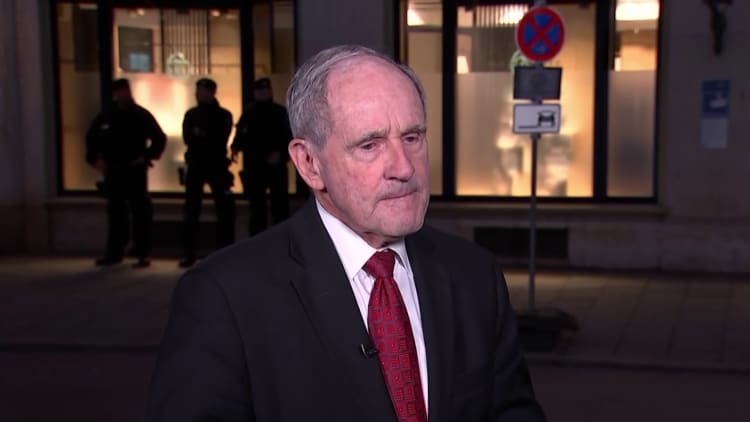Trump will quit NATO, Hillary Clinton says, as anxiety mounts over U.S. commitment to the alliance

MUNICH, Germany — NATO members on Saturday weighed the U.S.′ possible withdrawal from the military alliance if Donald Trump returns to the White House, with Hillary Clinton saying he would waste no time in quitting if re-elected.
Clinton urged delegates at the Munich Security Conference to take her one-time presidential rival’s tough talk “literally and seriously” as anxiety mounts over the future of the U.S.-led pact.
“He will pull us out of NATO,” Clinton told attendees during a lunchtime session.
Trump stoked fresh concerns over the U.S.′ commitment to NATO last weekend when he said he would “encourage” Russia to attack any member that doesn’t meet its spending targets. He has long criticized the alliance’s failure to ensure members make good on their obligation to contribute 2% of gross domestic product to defense.
Amid such rhetoric, the U.S. Congress passed a bill in December aimed at preventing any U.S. president from unilaterally withdrawing from the alliance without congressional approval.

U.S. Republican Senator Jim Risch, ranking member of the Senate Committee on Foreign Relations, on Saturday dismissed talk of the U.S. quitting NATO, saying: “We have answered that question.”
“It would take a two-thirds vote in the United States Senate to get out — that is never going to happen,” he told CNBC in Munich.
Clinton said, however, that Trump could actually just refuse to fund the alliance. “The U.S. will be there in name only,” she said.
Trump versus NATO
Concerns over the U.S. and Europe’s continued military coordination have dominated discussions at this year’s annual defense summit in Germany, as the specter of a second Trump presidency looms large and a contentious aid package for Ukraine hangs in the balance in the U.S. House of Representatives.
Dutch Prime Minister Mark Rutte earlier Saturday referenced constant “moaning and whining” at the event about the future of NATO under Trump.
“Stop moaning and whining and nagging about Trump,” he said.
He was one of many European voices, including that of German Chancellor Olaf Scholz and Danish Prime Minister Mette Frederiksen, who said that Europe needed to become self-sufficient in the face of a more uncertain future with its closest diplomatic ally.
Nhận xét
Đăng nhận xét